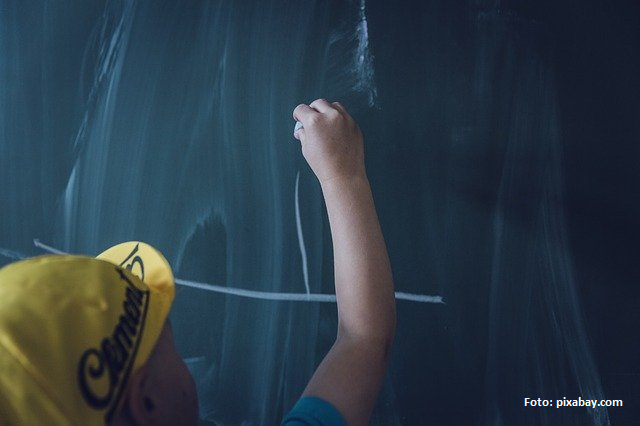Literacy and illiteracy in Romanian schools
BRIO drafted a comprehensive report on functional illiteracy in Romania

Christine Leșcu, 31.08.2022, 14:00
Functional illiteracy has become a
widespread topic in Romania in recent years. At first, the existence of this
global phenomenon was regarded with skepticism in our country, although international
PISA, PILS and TIMSS testing indicated that as much as 42% of Romanian pupils
under 15 could not read, had difficulty understanding written texts and also
had major shortcomings in assimilating scientific information. Gradually, the
public and government institutions started growing more aware of functional
illiteracy. Today, after two years of online schooling, which has amplified
educational gaps, the problem can no longer be avoided. A recent study
conducted by the BRIO digital testing platform was analyzed by the Education
Ministry in order to streamline testing mechanisms across public schools. The
report on literacy confirmed that over 40% of pupils had trouble assimilating
various information and skills taught in schools. The pupils were tested online
by means of 40,000 free tests provided by BRIO. University lecturer Dragoș Iliescu, the creator of this platform
and an expert in psychology and teaching, explains how pupils were tested.
They were each rated with a score from
0 to 100. Then we broke down the level of literacy in several categories: the
completely illiterate level from 0 to 20, followed by the minimum literacy
level and an acceptable literacy level. We picked a sample population of 31
thousand pupils that would give us a fair share of representation for the final
results. The final score was 26.9 points. On a scale from 0 to 100, this puts
the pupils a little above the completely illiterate threshold.
This means that, on average, pupils’
cognitive abilities are on a fine line between literacy and illiteracy. Exactly
how this score is translated into school performance we found out from Dragoș Iliescu.
Right now we’re only looking at that
percentage of the population that is rated in the functional illiteracy area,
which stands at 42% in our study. 47% is the share of those who are in-between functional
and dysfunctional. Only 11% are highly functional illiterates. This is a
worrying figure, because it shows we have a big percentage below this mark.
Besides, the number of people who are rated as dysfunctional illiterates does
not differ radically from one age category to the next: 37% at the age of six
compared to 41% in 14-year-olds.
Another fact that confirms the findings
of the literacy report is the gap between boys and girls, the former being much
better trained than the latter in the same age bracket. The only element that
has not been fully confirmed is the link between the degree of social and
economic development of a region and its degree of functional illiteracy.
I discovered something unexpected,
namely that regions with high poverty rates didn’t have a high degree of
illiteracy, correlated with their economic performance, contrary to my
expectations. Interestingly enough, our data did not confirm this, which makes
it a social problem. Another thing which is unreasonable is to expect the
ministry to solve this problem. People in Romania always think ‘this isn’t my
problem, it’s the education. Whoever’s in charge of education, namely the
ministry, should deal with it’. It’s exactly what’s wrong about the way parents
approach school, which has been confirmed by many surveys. As a parent, it’s
unreasonable to expect the school to solve your kid’s drawbacks and problems.
This will never happen. It’s time civil society stepped up.
To this end, we should better understand
the root causes behind this phenomenon. Luminița Costache from UNICEF Romania
describes it as learning
poverty.
More often than not, when we speak
about the right to education, we tend to think more about access and often
overlook participation or the quality of education. These three elements are
intertwined – you can’t have access to education without a proper participation
and a high quality of the education process. This leads to the kind of results
the report points to. I would like to introduce a term that has been circulated
a lot globally, and which is relatively unknown in Romania – learning
poverty. It’s an indicator measuring
illiteracy in children under 10. Romania doesn’t fare well in this respect.
Over 20% of children in Romania suffer from learning poverty. 7% of children of
primary school level are not enrolled in the system. Why is learning poverty so
important? We often speak about poverty, and studies reveal that financial
poverty affects children in Romania to a large extent. A recent report drafted
by UNICEF, UNESCO and the World Bank shows the lifelong economic impact on an
individual affected by learning poverty. Basically, this drawback extends to
the entire lifespan of the person’s adult life, and worse, it can be passed on
to future generations. While reports often speak about education as the most
sustainable road to prosperity, they should also say it’s the most sustainable
way out of poverty. Eliminating learning poverty leads to financial
prosperity.
The report on literacy in Romania was
drafted jointly with the Education Ministry, meaning the phenomenon has started
to sink in at institutional level as well. Countermeasures are expected to
emerge starting next year, by changing the way pupils are tested, which is
hopefully but the first stage in a much broader process. (VP)






























